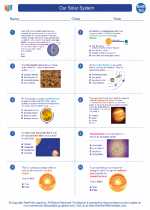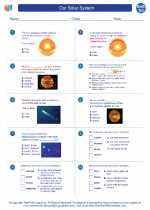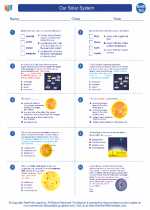Mercury
Mercury is a fascinating and unique planet in our solar system. It is the smallest and closest planet to the Sun, with a diameter of about 4,880 kilometers. Its proximity to the Sun means that it experiences extreme temperature variations, with surface temperatures ranging from -173°C at night to 427°C during the day.
Physical Characteristics
Mercury has a rocky surface that is heavily cratered, similar to the Moon. It has a very thin atmosphere, so it is unable to retain heat, resulting in the extreme temperature differences. The planet has a large iron core, which is thought to make up about 60% of its mass, leading to its high density.
Orbit and Rotation
Mercury has a highly eccentric orbit, which means it is not a perfect circle. It takes about 88 Earth days to complete one orbit around the Sun, but it has a much slower rotation period, taking 59 Earth days to complete one rotation. This means that it experiences three complete rotations for every two orbits, a phenomenon known as a "resonant rotation".
Study Guide
To better understand the topic of mercury, make sure to focus on the following key points:
- Physical characteristics of Mercury, including its size, surface features, and atmosphere.
- Mercury's unique orbit and rotation patterns, and how they contribute to its extreme temperature variations.
- The composition of Mercury and the significance of its large iron core.
- Comparisons between Mercury and other planets in the solar system, particularly those closest to it.
It is also important to study the various missions and explorations of Mercury conducted by space agencies, as well as any recent discoveries or updates related to the planet.
By understanding these key points, you will have a solid grasp of the topic of Mercury and its significance in our solar system.
[Mercury] Related Worksheets and Study Guides:
.◂Earth Science Worksheets and Study Guides High School. Our Solar System

 Worksheet/Answer key
Worksheet/Answer key
 Worksheet/Answer key
Worksheet/Answer key
 Vocabulary/Answer key
Vocabulary/Answer key
 Vocabulary/Answer key
Vocabulary/Answer key
 Vocabulary/Answer key
Vocabulary/Answer key
